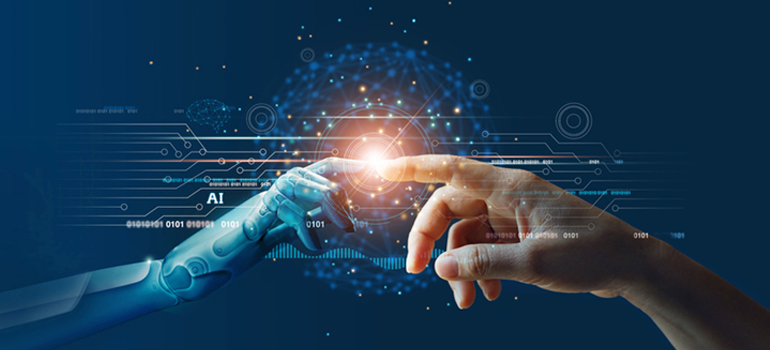
In an interview with indianexpress.com, the newly-appointed director of IIT-Madras said humanities and languages will play a major role in technology-oriented fields.
Kamakoti Veezhinathan has a new role at the Indian Institute of Technology (IIT) Madras as its director. Before that, Kamakoti spent years at the premier institution both as a student and a faculty member.
“The number of laboratories, student strength, departments, everything has massively increased from 1989 when I first joined the institute as compared to today in 2022,” said the newly-appointed director of IIT Madras.
Kamakoti talked about his plans to take his alma mater to newer paths in an interview with indianexpress.com. His plans include responsible Artificial Intelligence (AI), sponsored research to international rankings and interdisciplinary courses.
‘Responsible AI’
Kamakoti, who took charge last month, said when it comes to new-age technologies, accountability is still limited and it becomes difficult to ensure it. “It becomes very important to look at ethics, which comes under the category of value-based education. If something goes wrong with respect to AI, who is responsible? How do we ensure accountability in an AI system and ensure there is no bias? These are both very interesting and important topics. They will determine if AI will be successful. Hence, we will explore ‘Responsible AI’ as a major focus area,” the 53-year-old said.
His immediate plan also includes an IT-driven governance mechanism, called ‘Hyper Automation’, to enhance the efficiency of automated processes and systems.
In order to bridge the gap between theory and practice, the institute will focus on increasing the number of posts for the ‘Faculty of Practice’, he said. Kamakoti, who completed his PhD from IIT-Madras in 1995, pointed out these positions allow established industry professionals to work and take classes at IIT Madras.
“The real construction of the system on the field gives much more insight into the working of the system rather than solely theoretical knowledge and that is where the ‘Faculty of Practice’ plays a very good role. It allows students to get a holistic view not only about the basics and the working of the systems but what happens when we actually try to evolve such systems in the field. We already have around 20 positions and will be increasing it quite significantly to ensure the courses are well-handled,” he added.
Humanities and languages
About his plans to increase the multi-disciplinary quotient in the curriculum, he said humanities and languages will play a very important role in technology-oriented fields and that language-related inputs are necessary for technology. “We are going to handle the government’s ‘National Language Translation Mission’ in which we are trying to have a common platform that can be multi-lingual. It will be a big digital intervention and possibly the IT backbone for the country,” he added.
As many as nine international MTech courses in areas such as data sciences, energy systems, cyber-physical systems, and quantum technologies, among others, will be launched to attract foreign students on campus. “We have seen a lot of interest across the globe in our industrial MTech courses. We believe that we will attract, at least 1,000 applications from foreign students. That is our expectation,” the director said.
Ranking, quality research
IIT-Madras ranked at the top in 2021 on the National Institute of Ranking Framework (NIRF) but has not been able to breach the list of top 100 in any of the international rankings. In QS World University Rankings 2022, it is ranked at the 225th position.
While Kamakoti believes it is important for educational institutes to rank highly globally, he said Indian institutions also need to work on their international perception. “In international rankings, there are some technological aspects, but perception is given major weightage. One of the things we need to do is increase our outreach, and we are already on the job. We are very keen on reaching out to multiple countries. We will be doing it in a much more organised fashion now,” he added.
IIT-Madras is home to several successful enterprises and more than 200 deep technology startups have been incubated here. Kamakoti, who was the associate dean of Industrial Consultancy and Sponsored Research (ICSR) at IIT-Madras before taking over as its director, attributes this to the institute’s strong interdisciplinary approach and the availability of necessary infrastructure.
However, he feels the coronavirus pandemic has disrupted the environment at IIT that contributes highly to the success of startups. “Interdisciplinary projects involving students from multiple engineering departments are strongly encouraged. We believe that this interaction is a key factor that has led to several successful startups from the institute. The 24-hour learning culture has been severely impacted by the pandemic,” he said.
When asked if funding is a challenge for quality research in India, he said, “Funding is never a challenge when we go with a relevant proposal.” “Sponsored research helps us explore unexplored terrain. It actually fuels practical research. Funding agencies such as the Department of Science and Technology (DST) have certain sponsored research areas where one can go and explore unexplored terrain. This is what is called ‘discovery proposals’ where we can discover areas,” he added.
All the sponsored research which helps build foundational know-how, said Kamakoti, will essentially help in product-oriented or translational research. “Sponsored research fuels good product-oriented research,” he added.
Original News Link
https://www.iitm.ac.in/happenings/press-releases-and-coverages/responsible-ai-hyper-automation-integrating-humanities-tech